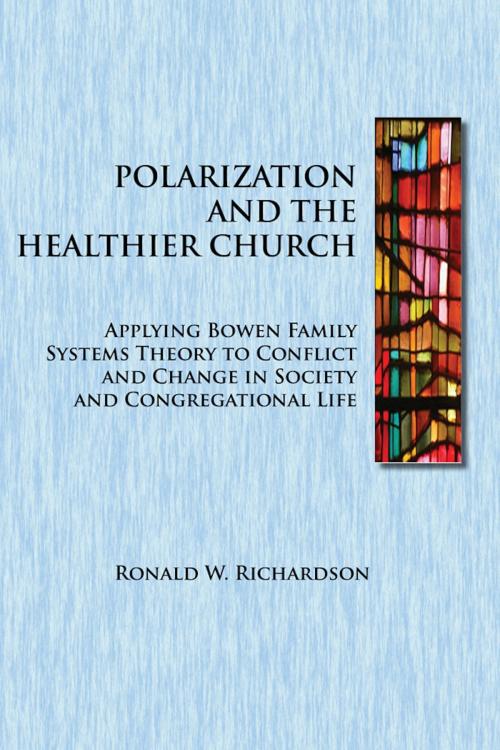Polarization and the Healthier Church
Applying Bowen Family Systems Theory to Conflict and Change in Society
Nonfiction, Social & Cultural Studies, Social Science| Author: | Ronald W. Richardson | ISBN: | 9781623092191 |
| Publisher: | BookBaby | Publication: | May 1, 2012 |
| Imprint: | Language: | English |
| Author: | Ronald W. Richardson |
| ISBN: | 9781623092191 |
| Publisher: | BookBaby |
| Publication: | May 1, 2012 |
| Imprint: | |
| Language: | English |
Polarization is endemic in North American society today. We can see its effects in nearly every political, cultural, theological, and social issue. The kinds of polarized issues that exist today are not new. They have existed for ages and some may never be resolved. What is different today is the intensity of anger, hatred, and the emotionality expressed. Society (at both governmental and the church community levels) seems unable to move ahead and deal with the problems at hand. We are stuck. The approach Ronald Richardson describes in this book for resolving them is unrelated to a specific political agenda on either the left or the right. The church can be a victim of the polarizing process and see its community life severely damaged by it. Some church members want to heighten this process. However, most people in the church and society want to handle their divisive issues more maturely and reduce the polarization in order to move ahead on solving the social/political problems that keep society stuck. This book is for them. The book offers practical and specific advice on dealing with polarized situations based on Richardson's own personal experience in a number of settings. Church leaders who want to be a positive force for change within polarized situations in their church or community will benefit immensely from this book. Both clergy and lay members can learn from the book, and their congregational life will improve as a result. Adult education groups will also find it a useful tool for discussion.
Polarization is endemic in North American society today. We can see its effects in nearly every political, cultural, theological, and social issue. The kinds of polarized issues that exist today are not new. They have existed for ages and some may never be resolved. What is different today is the intensity of anger, hatred, and the emotionality expressed. Society (at both governmental and the church community levels) seems unable to move ahead and deal with the problems at hand. We are stuck. The approach Ronald Richardson describes in this book for resolving them is unrelated to a specific political agenda on either the left or the right. The church can be a victim of the polarizing process and see its community life severely damaged by it. Some church members want to heighten this process. However, most people in the church and society want to handle their divisive issues more maturely and reduce the polarization in order to move ahead on solving the social/political problems that keep society stuck. This book is for them. The book offers practical and specific advice on dealing with polarized situations based on Richardson's own personal experience in a number of settings. Church leaders who want to be a positive force for change within polarized situations in their church or community will benefit immensely from this book. Both clergy and lay members can learn from the book, and their congregational life will improve as a result. Adult education groups will also find it a useful tool for discussion.















